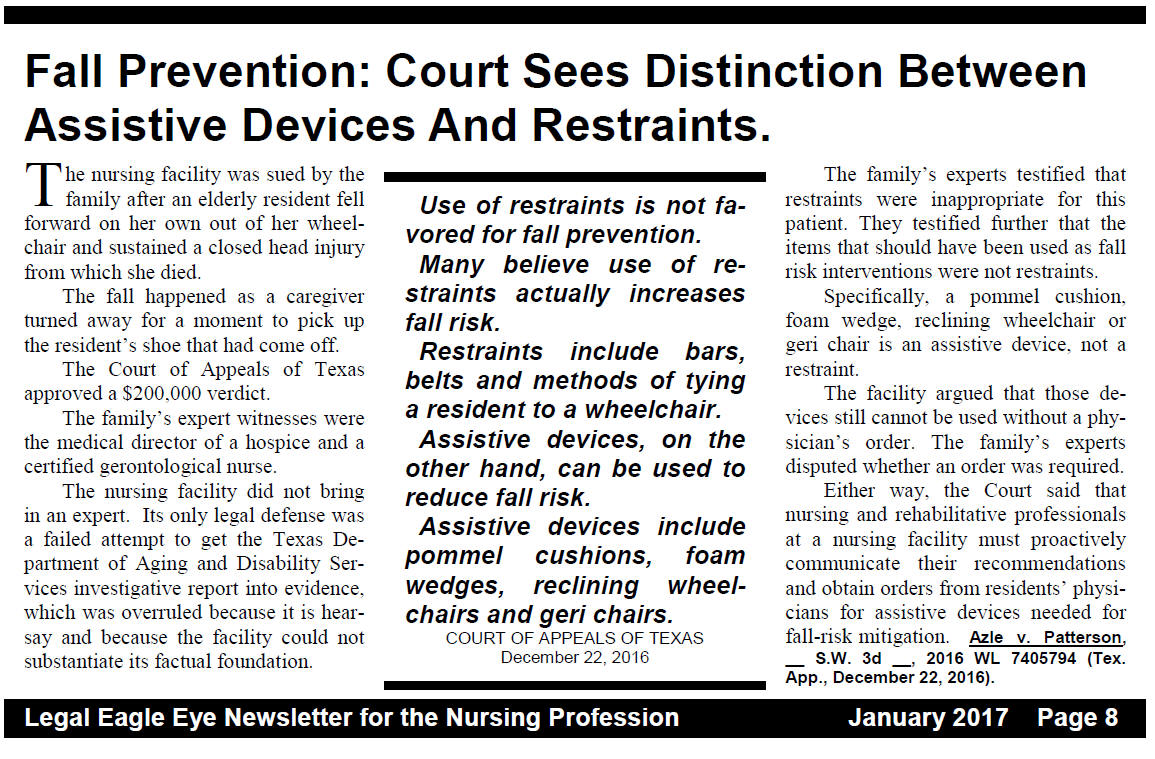
|
Click here for a complimentary copy of the current issue of Legal Eagle Eye Newsletter for the Nursing Profession |

More from nursinglaw.com
http://www.nursinglaw.com/fall-nurses-negligent.pdf
http://www.nursinglaw.com/fall-nursing-standards.pdf
http://www.nursinglaw.com/fall-nursing-interventions.pdf
Use of restraints is not favored for fall prevention. Many believe use of restraints actually increases fall risk. Restraints include bars, belts and methods of tying a resident to a wheelchair.
Assistive devices, on the other hand, can be used to reduce fall risk. Assistive devices include pommel cushions, foam wedges, reclining wheelchairs and geri chairs.
COURT OF APPEALS OF TEXAS December 22, 2016A nursing facility was sued by the family after an elderly resident fell forward on her own out of her wheelchair and sustained a closed head injury from which she died. The fall happened as a caregiver turned away for a moment to pick up the resident's shoe that had come off.
The Court of Appeals of Texas approved a $200,000 verdict. The familys expert witnesses were the medical director of a hospice and a certified gerontological nurse.
The nursing facility did not bring in an expert. Its only legal defense was a failed attempt to get the Texas Department of Aging and Disability Services investigative report into evidence, which was overruled because it is hearsay and because the facility could not substantiate its factual foundation.
The family's experts testified that restraints were inappropriate for this patient. They testified further that the items that should have been used as fall risk interventions were not restraints. Specifically, a pommel cushion, foam wedge, reclining wheelchair or geri chair is an assistive device, not a restraint. The facility argued that those devices still cannot be used without a physician's order. The family's experts disputed whether an order was required. Either way, the Court said that nursing and rehabilitative professionals at a nursing facility must proactively communicate their recommendations and obtain orders from residents physicians for assistive devices needed for fall-risk mitigation.
Azle v. Patterson, __ S.W. 3d __, 2016 WL 7405794 (Tex. App., December 22, 2016).